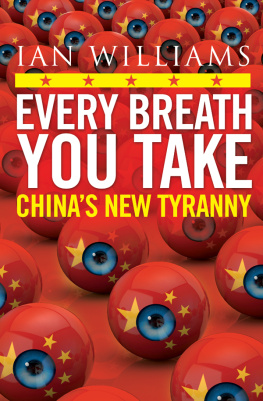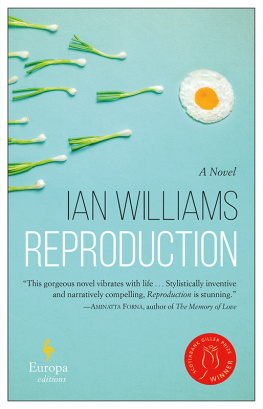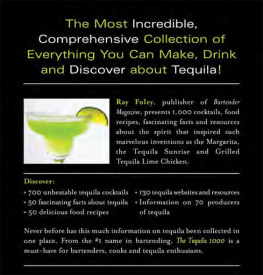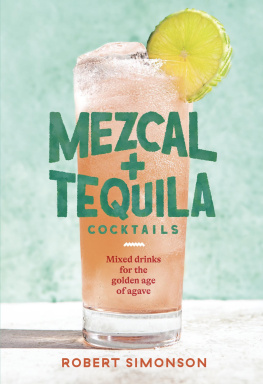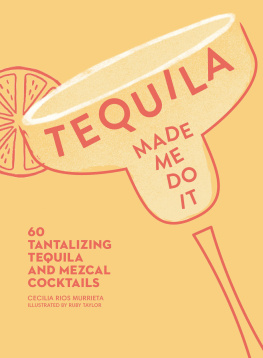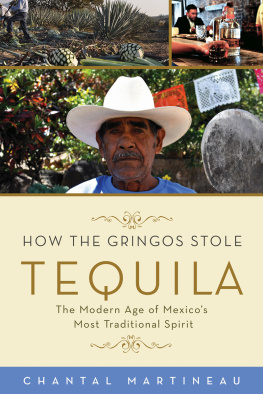TEQUILA

Edible
Series Editor: Andrew F. Smith
EDIBLE is a revolutionary series of books dedicated to food and drink that explores the rich history of cuisine. Each book reveals the global history and culture of one type of food or beverage.
Already published
Apple Erika Janik Barbecue Jonathan Deutsch and Megan
J. Elias Beef Lorna Piatti-Farnell Beer Gavin D. Smith
Brandy Becky Sue Epstein Bread William Rubel
Cake Nicola Humble Caviar Nichola Fletcher Champagne
Becky Sue Epstein Cheese Andrew Dalby Chocolate Sarah
Moss and Alexander Badenoch Cocktails Joseph M. Carlin
Curry Colleen Taylor Sen Dates Nawal Nasrallah Dumplings
Barbara Gallani Eggs Diane Toops Figs David C. Sutton
Game Paula Young Lee Gin Lesley Jacobs Solmonson
Hamburger Andrew F. Smith Herbs Gary Allen
Hot Dog Bruce Kraig Ice Cream Laura B. Weiss
Lemon Toby Sonneman Lobster Elisabeth Townsend
Milk Hannah Velten Mushroom Cynthia D. Bertelsen
Nuts Ken Albala Offal Nina Edwards Olive Fabrizia Lanza
Oranges Clarissa Hyman Pancake Ken Albala
Pie Janet Clarkson Pineapple Kaori O Connor
Pizza Carol Helstosky Pork Katharine M. Rogers
Potato Andrew F. Smith Pudding Jeri Quinzio Rice Renee
Marton Rum Richard Foss Salmon Nicolaas Mink Sandwich
Bee Wilson Sauces Maryann Tebben Soup Janet Clarkson
Spices Fred Czarra Sugar Andrew F. Smith Tea Helen Saberi
Tequila Ian Williams Truffle Zachary Nowak Vodka Patricia
Herlihy Whiskey Kevin R. Kosar Wine Marc Millon
Tequila
A Global History
Ian Williams
REAKTION BOOKS
To Dori Bryant, Juan Bernardo Torres Mora, Doug French,
Martin Grassl and all the others who helped me imbibe
so much material for my research
Published by Reaktion Books Ltd
33 Great Sutton Street
London EC1V 0DX, UK
www.reaktionbooks.co.uk
First published 2015
Copyright Ian Williams 2015
All rights reserved
No part of this publication may be reproduced, stored in a retrieval system, or transmitted, in any form or by any means, electronic, mechanical, photocopying, recording or otherwise, without the prior permission of the publishers
Page references in the Photo Acknowledgments and
Index match the printed edition of this book.
Printed and bound in China
A catalogue record for this book is available from the British Library
eISBN: 9781780234809
Contents

Foreword

Drinking spirits is an acquired habit. Although distilled alcohol is an admirably effective and speedy way to convey a buzz to the blood and brain, it often hits the palate with an initial harshness that is not immediately conducive to refined sensory gratification. That is why, over the centuries, drinkers invented cocktails, punches, liqueurs and myriad other ways to smooth the path of strong liquor down delicate throats. There is also an alternative method: quickly gulping down shots to expedite the passage of the stuff past the senses of smell and taste.
One big advantage of distilled spirits is their portability. Spirits not only need less storage space, but will not go sour as beers or wines sometimes do. They were historically usually drunk diluted anyway, in punches and similar cocktails, so concentrating them is done as much for reasons of commercial convenience as for taste. It is much easier to ship a barrel of spirits than to tote the ten or so casks that would be needed to transport the equivalent amount of alcohol within fermented drinks, which in turn is easier than moving the tons of barley, grapes, corn or agave used to begin the process.
For centuries, small quantities were distilled in monasteries and apothecaries and used as aqua vitae the water of life, treasured for its revivifying effect on the sick. Even though many surviving patients would have drunk to its therapeutic effect, our palate usually needs training to take spirits neat or to tolerate and relish the oaky flavours that the ageing process gives to most brown spirits, the smoky aroma of single malts or the peppery tingle from the agave that tequila and mescal communicate to the sides of the tongue, along with the hints of smoke from the roasting of the pods.
It symbolizes the triumph of the human spirit that we overcome our initial adverse reactions and persevere to savour the complexities and subtleties of the distillers art, and indeed come to cherish them so fondly. Perhaps more well than wisely, I have appreciated Chinese maotai, Balkan slivovitz and raki, Indian country liquor and Haitian clairin, white lightning moonshine from the Appalachians and even Irish poteen, which had intriguing rubbery notes since it had been smuggled through the Liverpool docks in the inner tubes of spare wheels on trucks coming off the Irish Sea ferries.
Like most casual tequila drinkers, my first acquaintances with Mexicos gift to a grateful world came buffered with other ingredients in large frozen margaritas. My friend Winston Cole was the bar manager at Zarelas restaurant in midtown Manhattan, which combined exquisite Oaxacan cuisine with a rapidly flowing glacier of frozen margaritas. In the late 1990s he served huge, heaped glasses of them to seething masses of bent brokers celebrating their ill-gotten gains from hawking dubious shares to gullible investors. Winston usually imposed a limit of three frozen margaritas per customer, and his policy was more than vindicated one night when we noticed a couple making love while standing up in the middle of the seething crowd. It was powerful stuff.
With emblazoned numbers that were more suggestive than significant, the tequila labels on Winstons bar shelves implied years of ageing to the same levels as cognac and single-malt whisky. I checked and had to disillusion him: When it says twenty-one on the bottle, it might be the age of the distillers daughter when she was married but thats at least nineteen years older than the contents.

Frozen margarita most peoples gateway drink to tequila.
However, while remaining popular, the idea of tequila as the drink of college binges, as epitomized in the old quip, Tequila! Have you hugged your toilet yet?, was being superseded as both product and palates became more refined. Aficionados were drinking it neat, not only as machismo-manifesting shots, but as a fine liquor. Bars saw less of the salt and lime ritual that hid the shock of bad tequila.
First the tequila-makers or tequileros, and then later the mezcaleros, saw which way the liquor was flowing. Bulk sales of knockem back tequilas were indeed good business, but the prices commanded by single malts, fine bourbons and cognacs suggested that fine, premium tequilas would be superb business. Ironically it was foreigners who pioneered the drive up the value chain, with Patrn and Porfidio in particular breaking into new niche markets. As we will see later, the Austrian entrepreneur behind Porfidio paid a heavy price for upsetting the pride of Mexican


